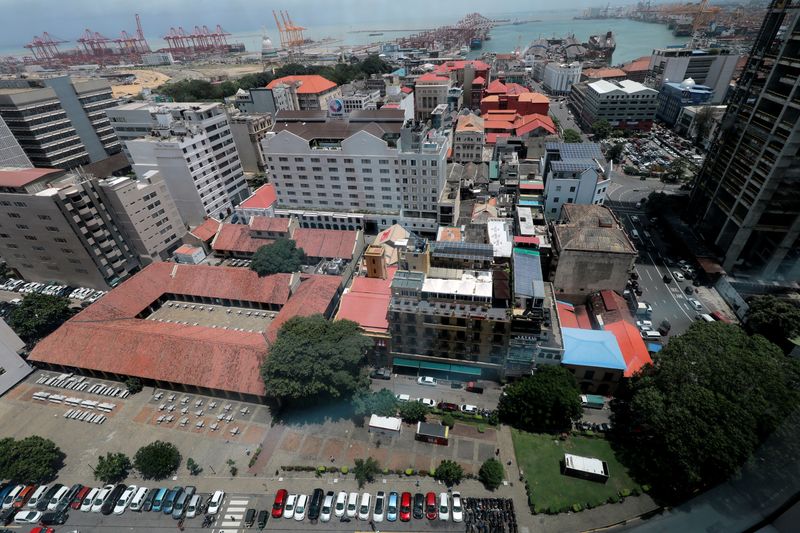By Karin Strohecker and Libby George
LONDON (Reuters) -Sri Lanka launched a long-awaited bond swap on Tuesday, a major step to completing its $12.55 billion debt restructuring and enabling its fragile economic recovery to continue.
Bondholders have until Dec. 12 to vote in support of the proposal, which would see them swap existing bonds for a set of new issues.
The island nation defaulted on its foreign debt for the first time ever in May 2022, buckling under a high debt burden and dwindling foreign exchange reserves.
The deal, which the then-government agreed with bondholders just two days before a September election, will - once approved - reduce debt service payments by $9.5 billion over the period of a four-year IMF programme, the government said in a statement.
"Today's official announcement of the commencement of the International Sovereign Bond restructuring with private creditors marks an important milestone for Sri Lanka," President Anura Kumara Dissanayake said in the statement.
“The terms of these agreements have been assessed by the Fund staff as being in line with the parameters of the IMF-supported program," IMF managing director Kristalina Georgieva said in a statement. "Rapid completion of the debt operation with high creditor participation would be vital for the success of the program."
Two bondholder groups, one representing international and another local bondholders, each issued statements supporting the deal. Together, the groups represent over 50% of Sri Lanka's outstanding sovereign bonds.
"This restructuring will help restore macroeconomic stability and encourage investment in the local economy to the benefit of the people of Sri Lanka," Sanath Manatunge, chairman of the local group and chief executive of Commercial Bank of Ceylon PLC, said.
The international ad hoc bondholder group urged all holders to review the documentation and participate in the exchange as early as possible.
It praised in particular the inclusion of macro-linked bonds and governance-linked bonds, which it called "key pillars of the restructuring".
Payouts on those bonds - dubbed State Contingent Debt Instruments (SCDI) - are linked, respectively, to Sri Lanka's economic performance and its achievement of certain concrete governance objectives.
SCDI securities are complex instruments designed to speed up difficult debt negotiations with bonds that promise payouts if the country hits certain targets.
Sri Lanka's existing bonds were largely steady at three-year highs, with bids between 64.30 and 65.60 cents on the dollar on Tuesday.

The country's bonds had been on a rollercoaster around the election, in which Marxist-leaning Dissanayake swept to power on pledges to cut taxes and revisit the IMF programme, stoking fears that he might also seek to revise the debt restructuring deal with bondholders.
However, Dissanayake instead signalled willingness to conclude the deal.